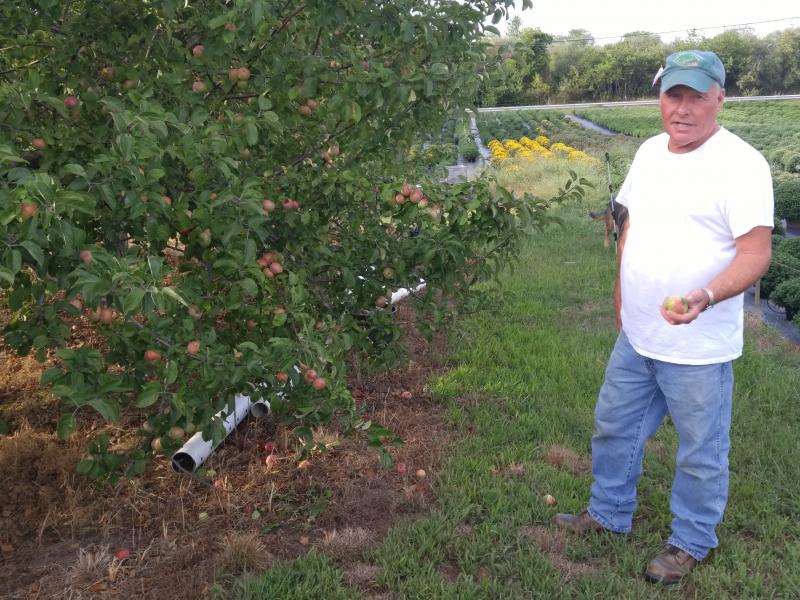Drought takes its toll on Dartmouth farms
As the South Coast faces drought conditions, customers stopping for produce at Dartmouth Orchards saw firsthand just how the drought is affecting local farms.
Owner Brian Medeiros held up an apple picked fresh from his orchard. The apples are smaller than they normally are this year, he said. In a typical year, the orchard sells about 100,000 pounds of food, but Medeiros said he already anticipates a much lower yield.
The drought affects more than apple yield, said Medeiros. The entire ecosystem is affected. Recently, deer ate through $3,000 worth of Medeiros’ mums because the lack of rain has reduced their main food source.
"[The deer] are pretty brazen and hungry,” Medeiros said. “They’ll take anything they can get."
Despite the drought, Medeiros said he always stays positive through tough times. He said some crops, like pears, have been largely unaffected by the drought and he expects them to sell well.
Peppers and potatoes are a different story, however. At Brix Bounty Farm, farmer Derek Christianson said that some crop yields—including pepper and potato—are down by 40 to 50 percent. Crops with better resilience to drought are thriving though.
“We had a really good tomato and melon season,” Christianson said. “Our source of insurance against drought is to grow a lot of varying crops.”
Christianson explained that certain fruits and vegetables, such as tomato and melon, actually taste better and have more flavor when grown during a drought.
Christianson is facing animal problems too. Although most of the farm is protected by fencing, deer are eating whatever they can get to, including cucumber plants that were not within deer fencing.
“Our deer fence is effective, but it’s getting to the point that the deer aren’t picky,” Christianson said.
At Silverbrook Farm, owner David Sanders said the drought has been particularly problematic in fields that do not have irrigation systems. He also had trouble with the germination of certain crops, noting that his summer squash and beets have been hit hardest, with yields down about 30 percent. With decreased sales, the farm has also been forced to scale back its operation.
“We haven’t been able to hire people as long as we usually do,” Sanders said. “We can’t have them working as many hours either.”
With the summer season winding down, Sanders said he is beginning to transition the farm into the fall, and will plant shorter-term crops that grow quickly, such as lettuce, radishes and other greens to help offset lost sales over the summer.















